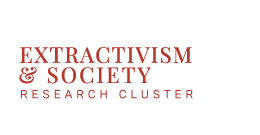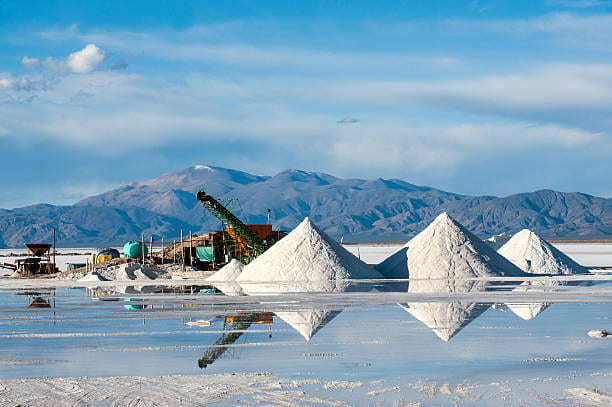By: Alejandro Artiga-Purcell
Communication drives extractivism. The search for, measurement, recovery, and processing of raw materials relies on increasingly complex and efficient forms of information sharing and meaning making. Large-scale mines are born of geological maps, hydrological models, economic spreadsheets, financial algorithms, corporate reports to shareholders, public policies, cultural norms, wants and needs, and the daily collaborative efforts and social relations of miners themselves. In short, communication is inseparable from the extractive process.
However, communication plays a still more fundamental role in constituting extractivism. What counts as extractivism, what resources are “critical” enough to warrant the social and ecological devastation entwined with their excavation, who should bear these costs and benefits, what are viable alternatives to extractivism (both political economic and socio-cultural), and who decides all of this, rely on the politics of framing.
Within communication studies, frames are broadly defined as “mental structures that shape the way we see the world” (Lakoff, 2004: xv) [1]. How we perceive reality shapes how we transform it. Crucially, frames are always partial in a double sense. First, they are necessarily incomplete. All frames emphasize and leave out different parts of the story. Second, what gets emphasized or left out, either consciously or more often unconsciously, is a matter of politics. For example, dominant framings of “just energy transitions” in response to “fossil fuel” extractivism, obscures the injustices rendered by a “clean” energy sector increasingly reliant on “dirty” metals and minerals like cobalt, copper, and lithium.
Extractive framing politics are cultural and economic. They are also ecological. As political ecology and science and technology studies (STS) teach us, the social and ecological are themselves inseparable within politics. From this perspective, we must restate George Lakoff’s claim that “reframing is social change” (Lakoff, 2004: xv), to better read, “reframing is socio-ecological change.” Reframing just energy transitions as a problem of extractivism–not just fossil fuel extractivism–transforms the social and ecological requirements of, activist demands for, and more-than-human allies (see below) engaged in a just energy transition.
Scrutinizing the socio-ecological politics inherent in framing requires one other amendment to our previous definition of frames. Namely, frames don’t simply shape socio-ecological change. They stem from it. That is, frames do not merely reflect and filter the “real world” through “mental structures” (a stance that upholds the material/ideational duality). Frames emerge from processual relations (as much material as ideational) that involve a host of human and non-human agents. Communication not only drives material processes, it is a material process. This gives a whole new meaning to the phrase, “communication matters.” The politics of “matter”–the contested struggles over where, why, and how resource extraction takes place–occur throughout the extractive process. And this process is necessarily communicative.
The emergence of lithium as a “clean” mineral provides a clear example of the materiality of extractivism communication. What makes lithium discursively “green” is not simply a matter of discourse alone, nor of cultural or ideational politics. Lithium has a specific materiality that interacts with people, technology, water, cultural landscapes, ephemeral capitalist geographies, and million-year-old geologies, among a host of other more-than-human actants and processes that guide the reframing process. More concretely, what makes lithium “green” is its distinction from the materialities of “dirty” coal, oil, and gas extractivisms. Lithium extractivism is not yet associated with black lung disease, mountaintop removal, or unfettered greenhouse gas emissions. The adjective “green” attributed to lithium is not a phantom untethered from the material world. It is rooted in the material world–in culture, in political economy, in ecology.
And yet, lithium’s materiality cuts both ways. Its “greenness” in comparison to other natural resources does not reflect innocent reality, but rather, evokes a particular ontological frame of the material world. As we’ll see, an alternative relational frame of extractivism casts lithium’s materiality in a radically dirtier light. But before delving into the necessary reframing work at hand, let us briefly recount the dominant frame of extractivism.
Recent work by Eduardo Gudynas (2021) reminds us that extractivism is not homogenous. Extractivisms are plural. It is this very plurality–this argument that not all extractivisms are created equal–that gives lithium its claim to “greenness” [2]. Seen as a thing, a pre-constituted resource with an innate essence, lithium can be unequivocally isolated and compared to other isolated and essentialized resources. Lithium is not coal. It is not cobalt. It is not copper. It is materially greener than them. This is the hegemonic logic and framing of clean energy transitions espoused by the Left worldwide. It is also the logic underlying the Right’s rhetoric that praises natural gas as a “bridge” to cleaner energy. More fundamentally, it is a framing which the uncritical analysis of extractive plurality leaves intact.
While certainly useful, analysis of plurality–of the typologies of extractivism or the differences between resources–can only take us so far. To better comprehend what counts as clean or dirty extractivism, and more fundamentally, what constitutes extractivism itself, requires analyses of the material-discursive relations that bind supposedly distinct resources and extractivisms together. It requires an ontological reframing of extractivism that moves from the division and comparison inherent in the notion of plurality towards the mutual constitution articulated within the concept of relationality.
While lithium is not cobalt, the two are relationally and materially inseparable. In an electric vehicle (EV) battery, Chilean lithium is worthless without Congolese cobalt. Without limestone mines and the notoriously carbon dioxide-emitting cement processors that help turn aggregates into roads, highways, and tarmacks, EVs would have nothing to drive on. Without iron, copper, and rare earth metals that power gargantuan earth moving trucks, sophisticated computers, stock market algorithms and logistical corporate emails, lithium mining–in whatever form–would not be possible! Lithium’s list of “dirty” material relations goes on and on.
Here we see that extractivisms are not merely a set of distinct resources that can be isolated on a sliding scale of clean to dirty. Extractivisms are webs of relations that occasionally compete (see natural gas replacing coal in the United States), but more often mutually constitute one another. Lithium, as we know it and use it, could not come into being without its material-discursive relations with its supposedly dirtier brethren. Within this relational framing, to define lithium, or any other natural resource, as an essentialized clean or dirty thing does not make sense. Lithium is only as clean or dirty as the company it keeps–cobalt, copper, asphalt, iron, rare earths, polluted water, forced child labor, lost lives, livelihoods, and cultures in the Congo, Chile, the Salton Sea and beyond.
Without attention to relationality, the plural framing of extractivisms falls woefully short of imagining, much less effectively communicating, a truly just energy transition. More generally, any movement towards socio-ecologically just futures must engage in a politics of reframing that centers the relational matters of extractivisms. Communication drives the extractivisms of old. A failure to communicate may well entrench the extractivisms to come.
[1] Lakoff, G. 2014. Don’t Think of an Elephant: Know Your Values and Frame the Debate. White River Junction, Vermont: Chelsea Green Publishing.
[2] Gudynas, E. 2021. Extractivisms: Politics, Economy and Ecology. Nova Scotia: Fernwood Publishing.

